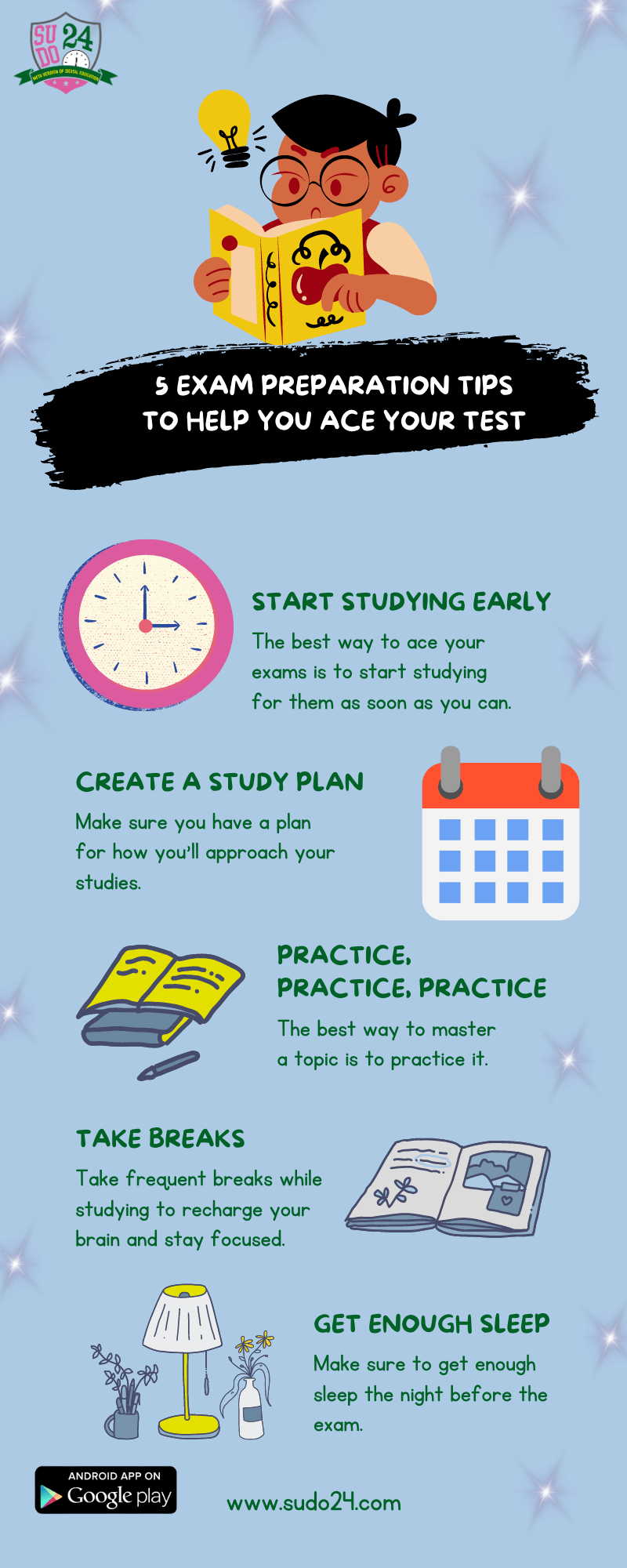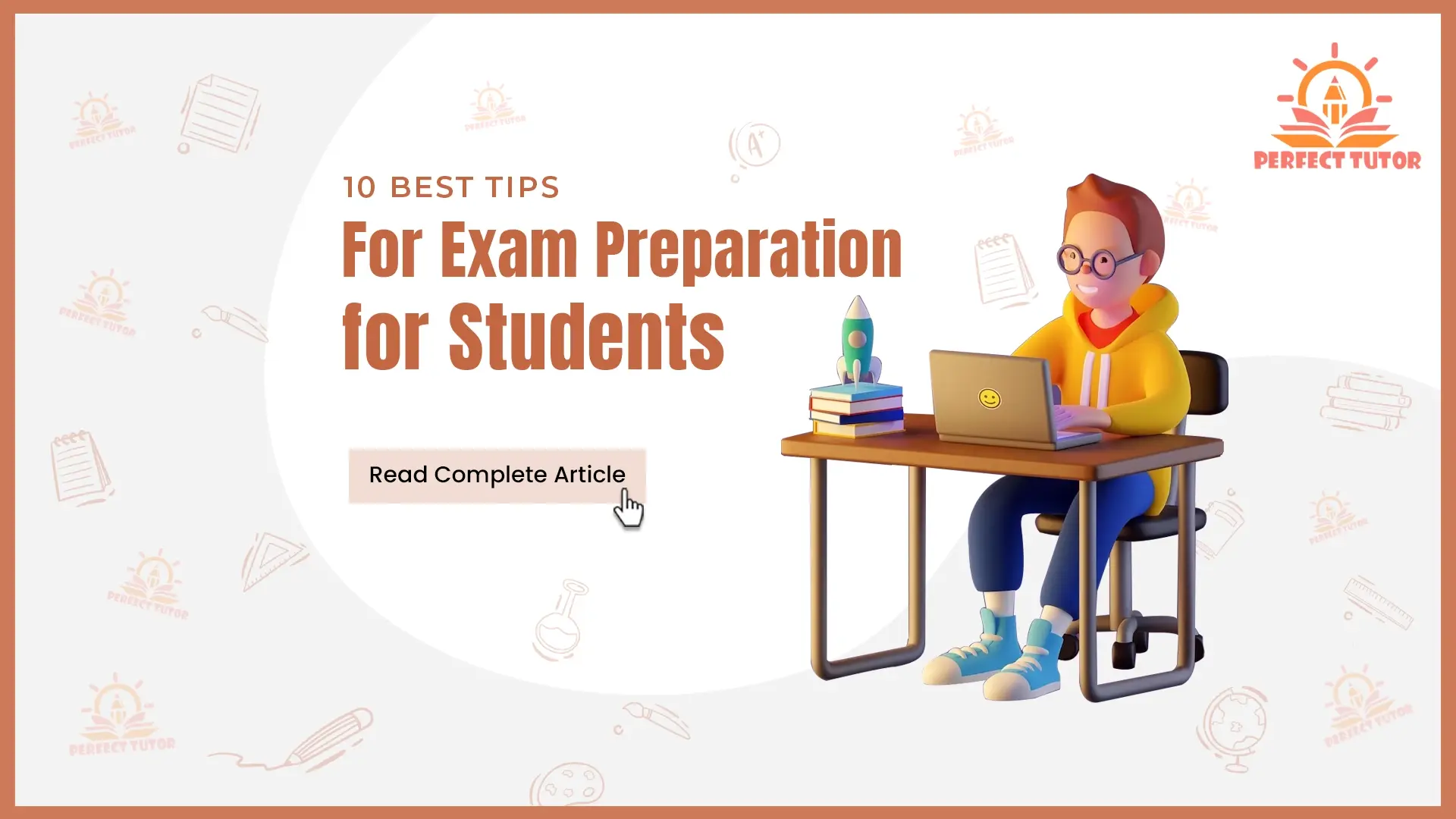Best Exam Prep: Your Ultimate Guide to Success
When it comes to exam preparation, finding the right approach and tools can make all the difference in your performance. Whether you’re preparing for high school finals, college entrance exams, or professional certifications, understanding effective study strategies is key to achieving the results you want. In this article, we will explore the best exam prep strategies and resources that will help you study smarter, not harder.

Why Exam Preparation Matters
Effective exam preparation is more than just reviewing notes and memorizing facts. It’s about understanding concepts, organizing your study time efficiently, and staying calm under pressure. Proper preparation helps to:
-
Boost your confidence before the exam.
-
Ensure you can recall information accurately.
-
Reduce anxiety and stress on the day of the exam.
The Importance of a Structured Approach
A structured study plan is essential for efficient exam prep. Random cramming often leads to confusion and burnout. By creating a study schedule, breaking down topics into manageable chunks, and revisiting challenging areas regularly, you can ensure a more organized and productive study session.
Top Strategies for Effective Exam Preparation
1. Start Early and Create a Study Plan
Starting early is one of the best ways to ensure success. Don’t wait until the last minute to begin studying. Start with a solid study plan that breaks down each subject or topic.
-
Key Tips for a Study Plan:
-
Dedicate specific time slots for each subject.
-
Include regular breaks to avoid burnout.
-
Focus on the most challenging topics first, when your mind is fresh.
-
A well-crafted study schedule ensures you cover all material before the exam date.
2. Use Active Recall and Spaced Repetition
When studying for exams, passive reading is not enough. Active recall, where you test yourself regularly, and spaced repetition are two powerful methods that enhance memory retention. By quizzing yourself on the material and reviewing it at spaced intervals, you’re more likely to remember the information long-term.
-
Active Recall: Write down everything you can remember from memory and check it against your notes.
-
Spaced Repetition: Review information multiple times, with increasing intervals between each review.
These techniques are proven to improve long-term retention and boost performance during exams.

3. Practice with Mock Exams
One of the best ways to prepare for an exam is by simulating the real exam environment. Practice with mock exams or sample questions. This helps you become familiar with the exam format, manage your time effectively, and identify areas where you need further improvement.
-
Benefits of Mock Exams:
-
Familiarizes you with the exam structure.
-
Helps build exam-day confidence.
-
Identifies weak spots in your knowledge.
-
You can find mock exams or sample questions on many learning platforms, such as Coursera or Khan Academy.
4. Stay Organized with Notes and Flashcards
Effective organization of your notes can help you stay focused and make review sessions more productive. Consider using flashcards for quick review of key concepts and terms. Digital flashcards, such as those available on Quizlet, allow for easy access to practice anytime, anywhere.
-
Why Flashcards Work:
-
They promote active recall.
-
Help break down complex topics into digestible pieces.
-
Can be reviewed on the go.
-
By organizing your notes and reviewing with flashcards, you ensure that you’re reviewing the most important material in a focused way.
The Best Exam Prep Resources
There are several excellent online resources that provide comprehensive courses, mock exams, and study materials. Here are some of the best:
1. Khan Academy
Khan Academy offers free courses on a variety of subjects, including math, science, and history. The platform provides interactive exercises and practice problems that will help reinforce key concepts for your exams.
-
Why Khan Academy?
-
Completely free and accessible to anyone.
-
Covers a wide range of subjects.
-
Interactive tools and practice exercises.
-
2. Quizlet
Quizlet is one of the most popular tools for flashcard-based learning. It allows you to create custom flashcards or access flashcards created by others. Quizlet also features game-like study modes, making the review process more engaging.
-
Why Quizlet?
-
Easy-to-use flashcard system.
-
Offers pre-made study sets for various exams.
-
Provides interactive learning methods such as games and tests.
-
3. Coursera
Coursera offers online courses from top universities, and many of these courses include practice exams. Whether you’re preparing for a certification exam or a college entrance exam, Coursera has comprehensive content that can help.
-
Why Coursera?
-
High-quality courses from prestigious universities.
-
Provides practice exams and quizzes.
-
Certifications available for many courses.
-
4. EdX
EdX is another excellent platform offering free and paid courses in a variety of subjects. It’s particularly useful for students looking for university-level content and those preparing for professional exams or certifications.
-
Why EdX?
-
Offers university-level courses and certifications.
-
Provides practice exams and interactive quizzes.
-
Strong focus on academic subjects like engineering and computer science.
-
Common Mistakes to Avoid During Exam Prep
1. Procrastination
One of the biggest mistakes students make during exam prep is procrastination. Putting off studying until the last minute can lead to stress and poor performance. To avoid this, stick to your study plan and stay consistent with your preparation.
2. Not Taking Breaks
Studying for long periods without breaks can lead to burnout. Incorporating regular breaks during your study sessions helps your brain absorb and retain information more effectively.
3. Cramming the Night Before
While it’s tempting to cram the night before an exam, this strategy rarely leads to success. Instead of cramming, focus on consistent studying over time, using techniques like active recall and spaced repetition.

Frequently Asked Questions (FAQs)
1. What’s the best way to manage exam stress?
To manage stress, focus on preparing early, practicing mindfulness, and staying active. Exercise, meditation, and a balanced diet can also help reduce anxiety.
2. How can I stay motivated while studying?
Set small, achievable goals and reward yourself for completing each one. Also, remind yourself of the bigger picture—what achieving success in your exam will help you accomplish.
3. How many hours a day should I study for exams?
The amount of study time needed depends on the difficulty of the exam and your current knowledge. Aim for 2-4 hours per day and gradually increase it as the exam date approaches.
4. Are online courses helpful for exam preparation?
Yes! Platforms like Coursera, Khan Academy, and edX offer structured courses and practice exams that can significantly improve your preparation.
Conclusion
Successful exam preparation involves more than just memorizing facts. By implementing active recall, spaced repetition, and mock exams, you can retain information more effectively and improve your exam performance. Additionally, utilizing online resources such as Khan Academy, Quizlet, and Coursera can give you the tools you need to succeed. Stay organized, manage your time wisely, and remember that consistent preparation is the key to acing your exams.
With the right strategies and resources, you can approach your exams with confidence and achieve the results you desire. Start preparing today and watch your efforts pay off!




